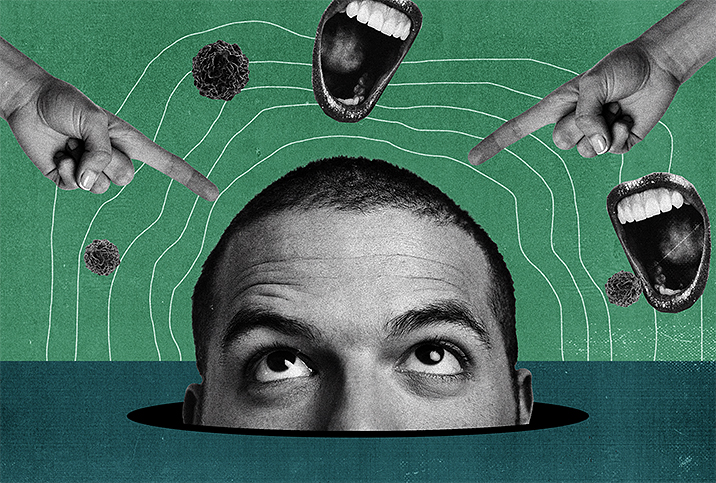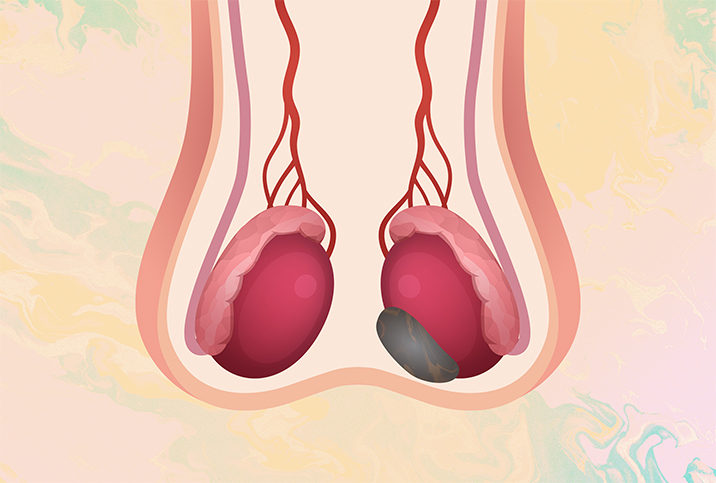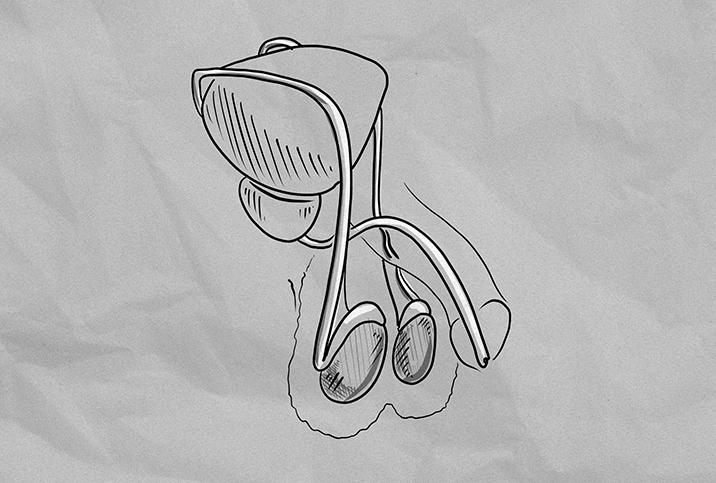Go Ahead, Men, Touch Your Balls—For Your Health's Sake

"Cancer" is perhaps one of the most terrifying words in the English language when used in a medical context. In many cases, cancer arrives as an unexpected, unknown and sudden diagnosis that can lead to long treatment battles and potential stays in the hospital.
Even living a pristine lifestyle with frequent doctor visits can't fully guarantee you won't get cancer. However, the odds of surviving cancer are greatly increased if it is detected early, which is why regular checkups and exams are important. So, too, is knowing the warning signs of cancer, because prior knowledge helps people recognize when to be alarmed with regard to their body.
One way to recognize physical signs is to conduct self-exams, but the thinking there is shifting. From the 1980s through about 2015, the American Cancer Society recommended people perform monthly self-exams to check for signs of breast cancer. Today, the ACS no longer makes this recommendation.
Recommendations in flux
Self-exams are divisive in the medical community. Why? Some reports suggest self-exams offer no help in identifying cancer, while others claim they are useful for early detection.
There is no standard screening test for testicular cancer, so self-exams are an option for men. Officially, the ACS has no recommendation on whether men should perform testicular self-exams, citing a lack of research on whether the exams reduce death rates.
The U.S. Preventive Services Task Force recommends against clinical and self-exams because testicular cancer is relatively rare (1 in 250 males) and the survival rate is high (about 95 percent), therefore, the benefits would be minimal.
The American Urological Association, however, includes self-exams in its Men's Health Checklist, because while testicular cancer is rare overall, it is the most common form of cancer in men between the ages of 15 and 35.
A need for awareness
Some guys, like Nick S., 26, a government contractor from Washington, D.C., find out about their testicular cancer never having been told about self-exams. (Not everyone in Nick's life knows of his cancer battle, so we have abbreviated his last name.)
"The decision to go to the doctor wasn't random," he said. "In August 2020, I attended a funeral for an uncle who had passed away due to kidney cancer. For some odd reason, I felt the need to go get a checkup, as I felt something was wrong with my body."
In the midst of the COVID-19 pandemic, a cancer diagnosis added a new layer of worry.
Before his diagnosis, Nick's knowledge of testicular cancer was limited. All he knew was that big, ugly word staring him down: cancer.
"I felt alone. Scared. Sad. But above all that, I felt disappointed that I wouldn't be around to see my little brothers grow up," Nick said. "I really thought this diagnosis was going to end my existence."
Rare and treatable
Testicular cancer is highly curable, even if it has metastasized extensively, explained Goutham Vemana, M.D., a urologic cancer surgeon for Allegheny Health Network in Pittsburgh. That's not the case with a lot of cancers.
About 9,500 men in the United States will develop testicular cancer in a given year, and the odds of survival are encouragingly high, but mortality is not the only concern with cancer. The average treatment cost for early-stage testicular cancer runs into the tens of thousands of dollars, an amount that can be especially devastating to someone who is younger with no savings or in a lower income bracket. However, a 2014 study in Cancer Medicine journal showed a significant cost benefit for early detection of testicular cancer versus costs for treating an advanced stage of the disease.
"Regardless of the numbers, the hardest battle one faces is mentally," Nick said. "I have never experienced depression or anxiety before. The way I was feeling throughout my journey was absolutely horrible."
This statement is backed up by research indicating survivors often report problems with sexual function, depression, anxiety, sexual identity and body image.
A self-exam worked
Vemana offered possible reasons the American Cancer Society has no recommendation on testicular self-exams: Early detection doesn't make much of a difference with testicular cancer because it's highly treatable at all stages, and many men mistake the epididymis, a crescent-shaped duct behind each testis, as a cancerous mass.
The purpose of self-exams is to familiarize yourself with the normal look and feel of the testicles. This way, if anything changes, the abnormality is more noticeable. Ryan Kinsey's experience mirrors this situation.
"I did a typical self-exam in the shower and noticed that there were, what felt like, two small, hard lumps on my right testicle roughly the size of a pea," said the 28-year-old data scientist from Washington, D.C. "I didn't think I had a lump, I knew I had a lump."
When Kinsey met with a urologist two weeks later, tests confirmed his worries: He had testicular cancer. After that, the process progressed quickly.
"Over the course of that week, I did two sperm donations, had a series of blood tests and imaging, and roughly five days after the initial appointment with the urologist, I had a radical orchiectomy to remove the right testis," Kinsey said.
Kinsey's self-examination led him to see his doctor, whereas Nick's visit was prompted by a gut feeling after a funeral.
"I never knew there was a way to check for abnormalities," Nick said. "My doctors never showed me. If it wasn't for me making the decision to go for a physical when I did, who knows what would have happened?"
No reason not to do self-exams
There aren't any risks associated with performing a testicular self-exam—unless you are prone to worrying upon the discovery of an assumed abnormality. Even then, the American Cancer Society identifies a few common issues that could lead to unnecessary worries about cancer: Fluid might collect around a testicle and form a hydrocele; veins in the scrotum might dilate and feel lumpy or enlarged as a result of varicoceles; it's normal for one testicle to be smaller than the other; and it's important to remember testicles have sperm-carrying tubes and blood vessels that actively transport fluid.
"Just because screening recommendations don't advocate for routine screening does not mean that men should not understand their normal anatomy to know when something is not right," Vemana said. "I would strongly advocate for men who have a family history of testicular cancer or a previous history of an undescended testicle to strongly consider performing self-examinations."
The recommended method for performing self-exams is to check one testicle at a time, making sure to examine the testicle completely by rolling it between your thumb and fingers from the front to the back. It helps to do this while taking a warm shower or after a bath, since the scrotum relaxes in heat.
Some men might find it strange to examine their testicles so closely. A testicular cancer survivor has a different perspective.
"I think it's time to squash the stigma behind guys being afraid to talk about their health and bodies," Nick said. "It doesn't make us less manly. Our health is important, and we owe it to our friends and family to live the healthiest lifestyle we can."


















